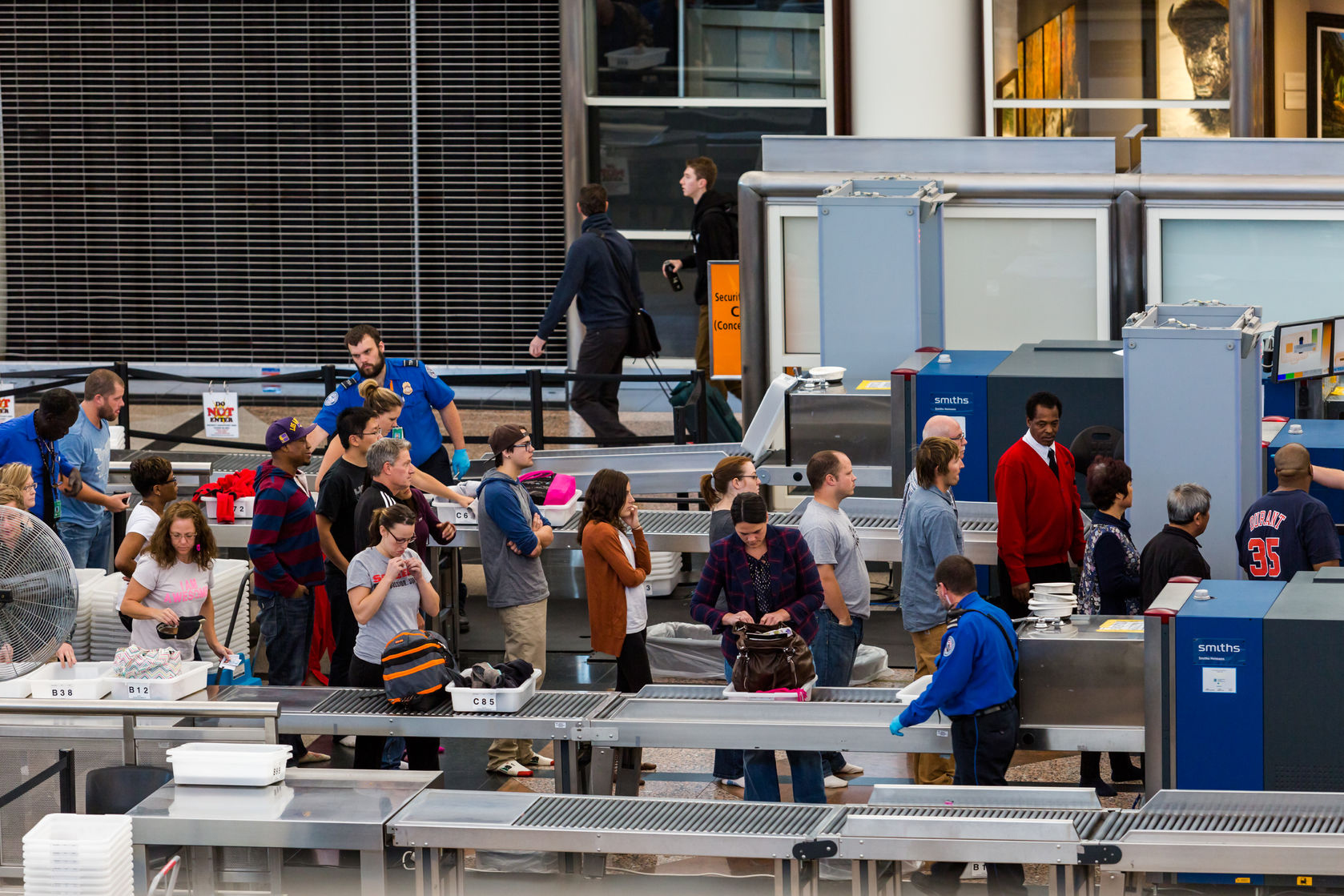Long delays at Transportation Security Administration checkpoints at major airports nationwide have been causing passengers to miss flights. The situation will likely get worse during summer, experts predict.
JFK, according to Fox News Travel, has “by far” one of the worst TSA checkpoints.
But security delays are not the TSA’s only problem.
Newark Liberty International, which runs a close second to JFK on Fox News’ list of US airports with “the worst TSA checkpoints,” also was slammed for lax screening and reports of employee theft. That resulted in a rare occurrence in government: Several employees were actually dismissed.
Not to be outdone, a screener at JFK last summer was likewise busted for theft, trying to abscond with a passenger’s Rolex watch. Another TSA security screener at JFK was arrested three weeks later on an unrelated theft charge.
And, of course, there is the competency issue. As The Post’s Philip Messing reported last fall, “security screeners at Kennedy and Newark airports have consistently failed to find weapons and bombs being smuggled by undercover operatives posing as airline passengers.”
There is a ready solution to the TSA’s problems: Replace the agency. In large airports with multiple security checkpoints, airlines should be required to hire their own screeners and set their own procedures, bypassing the TSA.
Competition among the airlines would help set the proper balance between safety and efficiency, based on passenger preference and demand. This same competitive process would also weed out unnecessary procedures that add little to safety while increasing delays.
Hiring private screeners would be a step in the right direction, but we also need to rethink how airport security is provided.
Understandably, dissatisfaction with the TSA is widespread. Twenty-two airports, including Kansas City International and San Francisco International, already have switched to private firms for security screening, and others, like Seattle-Tacoma International and Atlanta Hartsfield-Jackson International, are considering doing likewise.
American Airlines reported that in a single week in March nearly 6,800 of its passengers missed flights because of TSA security delays. In some cases, security lines have taken 90 minutes or more to clear.
Long delays are not necessary to keep us safe. The problem is the TSA is a government bureaucracy that has little incentive to balance safety considerations against customer satisfaction.
The requirement that passengers remove their shoes is just one bureaucratic hurdle that slows lines but does little, if anything, to make us safer. I was recently selected for enhanced security screening while flying out of Ben Gurion International Airport in Israel, presumably because I had a new passport.
Security personnel quickly took everything out of my bag and then repacked it. But they never asked me to remove my shoes.
When the TSA’s human robots harass us by confiscating our toiletries and forcing us to remove our shoes, they create the illusion of “doing something” to make us secure. But much of the experience is unnecessary theater.
Privatizing security screening is a step in the right direction. A private company, which could be replaced if it’s not performing to the satisfaction of the flying public, would have an incentive to properly staff security lines to minimize delays. The TSA, which has 15 percent fewer screeners than in 2011, has no such incentive.
But privatization alone wouldn’t fully solve the problem when Washington still mandates security procedures.
We need the people who conduct the security screening, and who make the screening rules, to weigh the expected benefits of a screening procedure against the likely costs, in terms of traveler delays and dissatisfaction. Only the competitive profit-and-loss system does that well.
Most of the benefits of airline safety accrue directly to airlines and their passengers. So, if the airlines are ceded responsibility for security screening, they also should be held strictly liable for any harm caused by security breaches.
Travelers have suffered unnecessary delays and harassment from the TSA for nearly 15 years. It’s time to turn to a truly private alternative. It would make us safer, less hassled and freer.
Flying might even become fun again.












